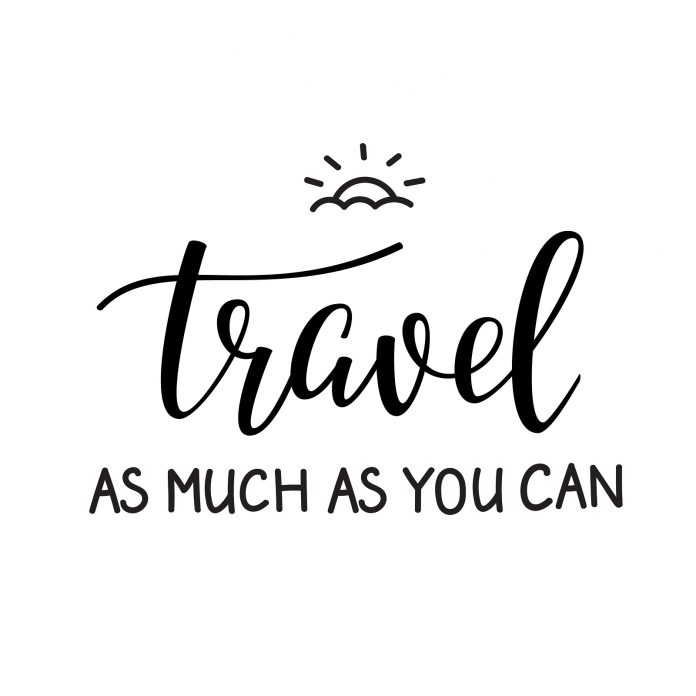We have shared a few articles previously on senior travel and wanted to add some more great tips for you since this is the season for travelling!
Travelling is one of the activities you have time for and can enjoy when you’re a senior. Many seniors travel alone, others in groups or on tours, by plane, train or cruise ship. If you enjoy travelling, there are some things to remember that can make your trip comfortable and memorable.
Plan Ahead
Start early and plan as much of your trip as you possibly can before you leave. Look into methods of transportation, accommodations and any discounts or upgrades which may be available.
Pack Light and Pack Smart
Take less clothing and toiletries and do laundry more often if you have to. If you can afford it, buy clothing and toiletry items once you arrive. Use a rolling suitcase, not one that you have to carry. If you need a second bag, bring a small one that will attach to or sit on top of the larger bag. A money belt is preferable to a purse. Always keep your safety in mind. Some areas of larger cities are much safer than others. Be alert. Keep your cellphone with you and ensure that before you leave, you have set it up to make calls from the area you are visiting. Have check in times arranged with family or friends.
Bring extra eyeglasses and a magnifying glass. You’ll need them for detailed maps and schedules. Don’t forget a small notebook for things you need to remember such as your hotel room number and the phone number of your hotel and a local taxi service.
In most countries, you will need to bring your medications in their original containers. Always take a full supply of all prescription medication as well as any vitamins or supplements which may not be available where you are visiting.
If you wear a hearing aid, bring spare batteries. Battery sizes that are specific to your country may be difficult to find elsewhere.
Make a folder to hold all of your documentation: passport, other identification, list of medical issues and prescriptions and travel insurance.
Find Accommodations That You Love
Find a place to stay that is comfortable for you but also convenient. Depending on where you are travelling and what interests you, this could be right in the centre of a city or it could be along a beach far from the closest town. This eliminates unnecessary travel time. You know what means the most to you. Is it a luxurious room, theatres and expensive restaurants or is it hiking trails and lakes?
Book in advance and make a sensible itinerary. At least six months before you leave and preferably earlier, book accommodations and tickets for air flights, trains or cruises. Waiting too long may mean you can’t stay in an area that is convenient for you or leave on the day that you had planned to leave. It is almost always cheaper when you book far in advance. Most airports expect you to be there at least 3 hours before flight time.
For the Disabled Senior
Those with mobility problems have more plans to make before they leave. Not all countries have easy accessibility so research where you are going and where you plan to visit in each city. You’ll be surprised at the places in the world which are actually wheelchair accessible such as the Herculaneum Ruins. For those travelling with a caregiver, there will be more options.
Research bus routes, subway stations and attractions before you arrive. Have a plan in place for any problems that could arise while you are travelling. Some parts of different cities, usually the newest parts, tend to be easier for using a wheelchair. Many of the oldest streets, especially in European cities, are barely wide enough for one person to walk through so always take these into account when planning your route. If stairs are a problem for you, always request a ground floor room.
Have a back-up plan. Give yourself extra time and remain flexible so your trip isn’t ruined by unexpected events that crop up. Keep in mind that what defines accessible in one country may not mean the same thing in another! Check out resources such as tourism offices before you leave.
Travel Insurance
In Canada, your government health plan provides limited medical coverage if you are travelling out of your home province. Travel medical insurance can provide extra emergency coverage with policies limited to no more than $5,000,000.
Benefits include:
- Private or semi-private hospital accommodation for emergency medical care
- Emergency medical, surgical or anesthetic services
- Emergency extended health benefits such as:
- Prescription drugs
- Diagnostic and laboratory services
- Ambulance services
- Accidental dental and emergency dental treatment
- Transportation of a family member or friend to your hospital bedside
- Emergency transportation to the nearest appropriate medical facility or Canadian hospital
- Return of your vehicle to your home or rental agency
- Return of your children with an escort if you are evacuated to Canada
- Ambulance services by air, land or sea
- Emergency round trip; get a free flight home and back to your destination
Seniors pay more for travel insurance but are also more likely to need it.
Travelling is fun but it’s even better without mishaps. Start your planning early, make lists, travel light and enjoy yourself!
























